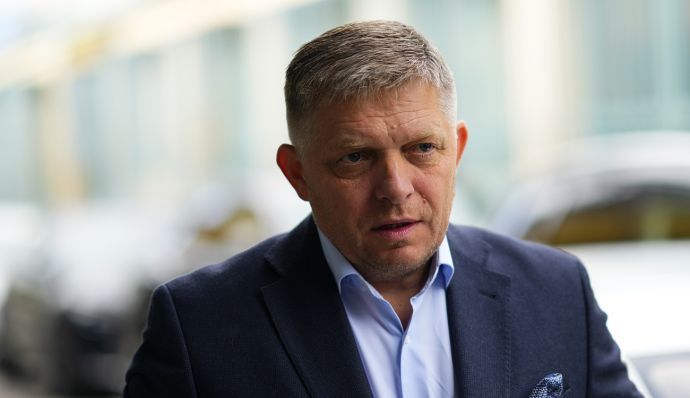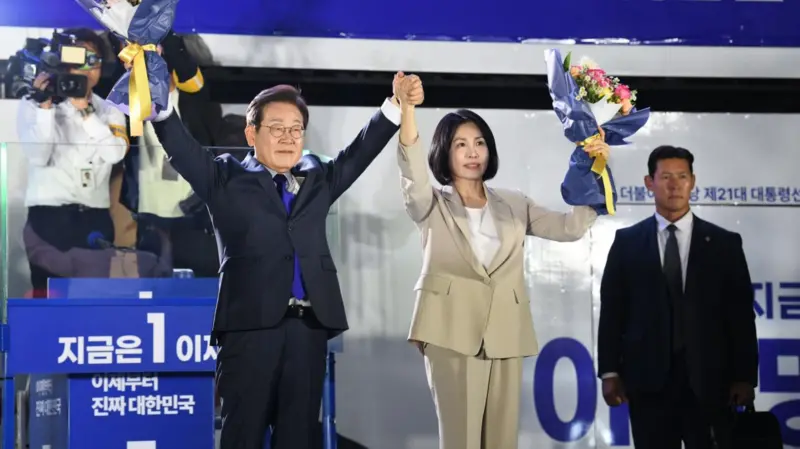Belarusian opposition leader Sviatlana Tsikhanouskaya is asking the Canadian government to reject the legitimacy of a 2025 presidential election being organized in her homeland by strongman Alexander Lukashenko.
Mr. Lukashenko, who held on to power in 2020 despite what Canada and many other Western countries consider a fraudulent election, is staging another presidential ballot on Jan. 26.
“Don’t call this farce an election,” Ms. Tsikhanouskaya said in an interview Monday in Ottawa, where she is meeting with the federal government.
“It’s more a military operation or the ritual reappointment of Lukashenko by Lukashenko – but it has nothing in common with elections.”
Mr. Lukashenko, who relies on Russia to maintain power, is widely expected to be declared the winner of this vote. It would secure him his seventh term in office.
Ms. Tsikhanouskaya, who many believe won the 2020 presidential election in Belarus, has asked Canada to issue a statement in advance of the January vote to make clear it does not consider the ballot legitimate.
She said Canada should not put any faith in those who would run against Mr. Lukashenko in the coming ballot. “These are Lukashenko’s people,” she said. “We already know who will be the winner and who will be the losers in these so-called elections.”
Up to 300,000 Belarusians have been forced to leave the country since 2020, a report from UN human-rights office estimated earlier this year. In 2020, massive protests against an August presidential election widely considered fraudulent led to a harsh crackdown on political opposition.
Ms. Tsikhanouskaya is asking Canada to apply more sanctions on Belarus, including on those responsible for human-rights abuses there such as judges, prosecutors and “propagandists” who support Minsk’s conduct, as well as those who assist in what she considers false elections.
Earlier this year, Canada announced $1-million for an organization here that will support Belarusian journalists.
In September, 2023, Mr. Lukashenko banned citizens from renewing their passports while staying abroad. This measure could force those who fled the country amid growing repression to return to maintain their travel documents.
Ms. Tsikhanouskaya has asked Canada to help find a way for Belarusians in Canada to “stay legally” in this country despite expired passports.
Her husband, dissident Sergei Tikhanovsky, was jailed by Belarus in 2021 for 18 years in a trial she has condemned as revenge for standing up to Mr. Lukashenko.
In recent weeks, Iranian Shahed attack drones used by Russia to rain destruction on Ukraine have been tracked leaving Ukrainian airspace and entering Belarusian airspace. Ms. Tsikhanouskaya said technical specialists she has spoken to believe some of these drones are falling victim to Ukrainian countermeasures that are disrupting the machines and sending them off course. “For Belarusian people, it’s getting hard for the regime to hide its complicity in the war.”
Mr. Lukashenko’s argument that “at least I am protecting you from the war” doesn’t work any more because Shaheds are now flying above Belarus, she said.
The UN’s Office of the High Commissioner for Human Rights said in a report earlier this year that thousands in Belarus have been arbitrarily arrested and detained for exercising freedom of expression and assembly.
There are about 1,400 political prisoners in Belarus right now, Ms. Tsikhanouskaya said. But that number doesn’t include those who have served their sentences and been released. “They are constantly adding political prisoners,” she said of Minsk.
Mr. Lukashenko retained his hold on power after the disputed 2020 election by crushing mass demonstrations against him. His only staunch ally has been Russian President Vladimir Putin, and he depends on Moscow politically and economically. Belarus allowed Russia to mount part of its February, 2022, military assault on Ukraine from its territory.
Ms. Tsikhanouskaya said Belarus is making a lot of money off Russia’s war on Ukraine by buying products for the Kremlin, including microchips that Moscow can’t procure because of international sanctions. “Lukashenko is helping to circumvent loopholes,” she said.
Mr. Putin attacked the Ukrainian city of Dnipro on Nov. 21 with what he said was an experimental new ballistic missile. Although the missile was not equipped with a nuclear warhead, Mr. Putin suggested it would have been capable of carrying one.
The strike on Dnipro happened four days after departing U.S. President Joe Biden gave in to months of pressure and allowed the Ukrainian military to use Western-made long-range missiles to strike Russian territory.
Ms. Tsikhanouskaya called this a “deliberate provocation by Putin” to raise the stakes and frighten the West and Ukraine. “They are crossing red line after red line,” she said of Moscow. The West needs to provide Ukraine with better air defence systems rather than be cowed by the attack. “Russia will not stop itself,” the opposition leader said. “Only strong countries can stop it.”




































